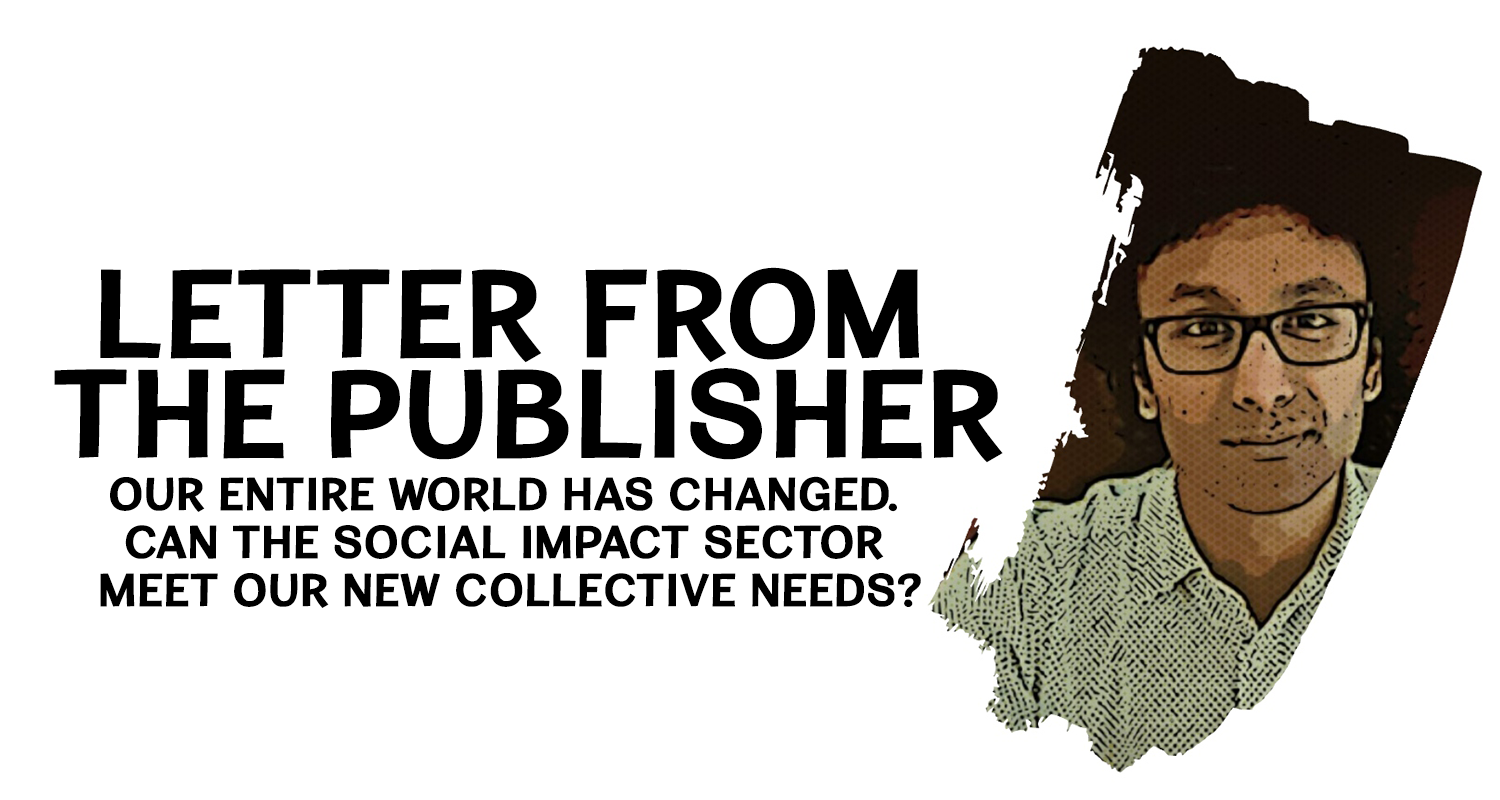Our entire world has changed. Can the social impact sector meet our new collective needs?

“Aren’t you a bit too old to be idealistic about social change?” a prominent global leader taunted me with a smile during a 2013 lunch in a restaurant in San Francisco. I was in the city attending SOCAP, one of the largest social entrepreneurship conferences in the world. At that time, I was leading Impact Hub Ottawa, what has now become a renowned coworking community for impact-oriented people. His question about my idealism took me by surprise. His words were skeptical; his tone, cynical. At that time, I experienced the man’s provocation as an affront to what my team and our collective work represented. His question was in response to a vision I shared of local change-makers from a variety of sectors and neighbourhoods driving innovation through collaboration.
It’s now June 2020 and it feels like the entire world has changed.
Mass unemployment, collective mental trauma, weak elderly care, increased domestic violence, fight for precarious workers’ rights, online bullying, food insecurity, systemic racism. These problems are exposed and amplified by the pandemic. They are problems that aren’t simple to solve. They are compounded by millions of actions, inactions, and interactions. They change by the hour. They are complex. They are interconnected.
These problems don’t stick to organizational strategic plans. They don’t respond to social movements alone. They are beyond any one sector. They can’t be analyzed with three-year-old data. And they won’t be solved by a singular program or technology.
A new breed of economic, environmental, and social problems are emerging.
COVID-19 blindsided the world with its global scale, speed, and devastation. It will leave behind a long trail of disruption and much-needed recovery.
The question now is: Can the pre-COVID social impact world satisfy post-COVID societal needs and ambitions?
In the lead up to Canada Day, I have been rewatching, and in many cases watching, for the first time, Historica Canada’s Heritage Minutes. Launched in 1991, Heritage Minutes are a collection of more than 90 one-minute short films that recreate events of importance, accomplishment and bravery in our country’s history. Some of them, like Naskumituwin, serve as a reminder of the historical treaty injustices that people are still fighting. Some, like Marconi, illustrate the power of technical ingenuity, and some, like Viola Desmond, offer an energizing example of the progress that social movements can bring.
The last few months of the pandemic, and the last few weeks with anti-racism protests have shown that in many ways that there’s only been incremental progress in inclusive economic and social development since the days’ Viola Desmond led the civil rights movement in Nova Scotia.
Given all that our country has experienced so far this year, what type of country do we actually want to become? And therefore, what kind of social impact sector should we have? What should be our renewed culture and way of working post-pandemic?
At Future of Good, we believe that from this pandemic and the anti-racism movements there can emerge a new culture and new way of working together to address our collective challenges — building trust, sharing ideas, encouraging ambition, one where mistakes and omissions had been covered up are now acknowledged as learning, where there has been deference now contribution and questioning is invited, and where teams reward imagination and celebrate truth-telling.
This week, Future of Good celebrates its 300th story.
Our team has covered stories of astonishing creativity and hard work across Canada, in areas like gender equality, mental health, tackling hunger, bridging the digital divide, strengthening social finance, and Indigenous innovation, and in places like Pond Inlet, Calgary, Montreal, Halifax, Toronto, and Vancouver. That’s at least 300 ways people are determined to create a better world, and a better world of impact.
Back to that lunch in San Francisco.
After the man at my table asked me if I was too idealistic about social change, I took a breath. “There are many things in the sector that aren’t working. So who can fix the sector?” he quickly followed up. “Only everyone,” I said. The man’s face broke into a cynical smile. The thing is, cynics might point to a system of philanthropy, social services, and business models so suboptimal that attempts to change it are futile. But cynics don’t build the future.
There is no simple recipe for overnight transformation, but there’s a great deal in our first 300 stories of the courage, wit, imagination, compassion, frustration, discovery, and learning that we can all use to build a renewed culture and way of working post-pandemic.
Here’s to building back better. Here’s to the next 300.
Vinod Rajasekaran
Publisher & CEO
